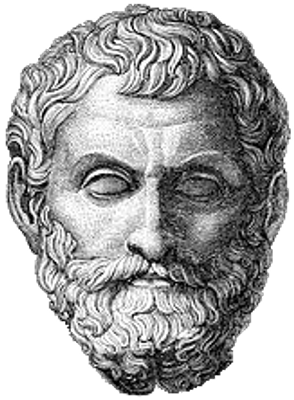2.7.1
Naturalism
Naturalism
Naturalism
Naturalism is a belief that moral values can be discovered through observation of the natural world.


Understanding naturalism
Understanding naturalism
- Naturalism suggests that values exist as part of natural properties like pleasure or happiness.
- G.E. Moore questioned naturalism in 1903, arguing in "Principia Ethica" that identifying good with any natural property leads to the "naturalistic fallacy."
- Naturalism is rooted in empirical evidence, meaning it relies on observable and measurable phenomena.


Naturalism and absolutism
Naturalism and absolutism
- Absolutism holds that moral principles are universal and fixed.
- According to naturalism, absolutist values are part of natural laws and thus universally applicable.
- Naturalism supports the idea that some actions are inherently right or wrong, regardless of context.
- By linking moral laws to natural properties, naturalism provides a foundation for moral absolutism.


Challenges to naturalism
Challenges to naturalism
- Critics argue that not all values can be reduced to natural properties.
- Some philosophers, like David Hume in the 18th century, claimed that naturalism confuses descriptive facts with prescriptive values.
- Hume's "is-ought" distinction suggests you cannot derive moral "ought" from natural "is."
- Critics propose alternative ethical theories, like intuitionism, which rejects the idea that values are natural.


Historical context of naturalism
Historical context of naturalism
- Naturalism dates back to ancient philosophers like Aristotle, who identified virtues as natural states.
- In the 19th century, Charles Darwin's theory of evolution influenced naturalism, suggesting morality evolved naturally.
- The 20th century further formalised naturalism through philosophers like G.E. Moore and A.J. Ayer.
- Each historical figure contributed to shaping naturalism by integrating observations from natural science.


Examples of naturalism in absolutism
Examples of naturalism in absolutism
- A naturalist might argue that kindness is morally good as it promotes living in harmony with others, a natural human need.
- An absolutist view would see kindness as universally good, supported by its natural benefit to society.
- For example, caring for others improves community wellbeing, creating naturally observable benefits.
- This reflects naturalism's principle that moral good can be defined through natural human flourishing.
1Philosophy of Religion
1.1Ancient Philosophical Influences: Plato
1.2Ancient Philosophical Influences: Aristotle
1.3Ancient Philosophical Influences: Soul, Mind, Body
1.4The Existence of God - Arguments from Observation
1.5The Existence of God - Arguments from Reason
1.6Religious Experience
1.7The Problem of Evil
1.8The Nature & Attributes of God
1.9Religious Language: Negative, Analogical, Symbolic
2Religion & Ethics
2.1Natural Law
2.2Situation Ethics
2.3Kantian Ethics
2.4Utilitarianism
2.5Euthanasia
2.6Business Ethics
2.7Meta-Ethical Theories
2.8Conscience
3Developments in Christian Thought
3.1Saint Augustine's Teachings
3.2Death & the Afterlife
3.3Knowledge of God's Existence
3.4The Person of Jesus Christ
3.5Christian Moral Principles
3.6Christian Moral Action
3.7Development - Pluralism & Theology
3.8Development - Pluralism & Society
3.9Gender & Society
3.10Gender & Theology
Jump to other topics
1Philosophy of Religion
1.1Ancient Philosophical Influences: Plato
1.2Ancient Philosophical Influences: Aristotle
1.3Ancient Philosophical Influences: Soul, Mind, Body
1.4The Existence of God - Arguments from Observation
1.5The Existence of God - Arguments from Reason
1.6Religious Experience
1.7The Problem of Evil
1.8The Nature & Attributes of God
1.9Religious Language: Negative, Analogical, Symbolic
2Religion & Ethics
2.1Natural Law
2.2Situation Ethics
2.3Kantian Ethics
2.4Utilitarianism
2.5Euthanasia
2.6Business Ethics
2.7Meta-Ethical Theories
2.8Conscience
3Developments in Christian Thought
3.1Saint Augustine's Teachings
3.2Death & the Afterlife
3.3Knowledge of God's Existence
3.4The Person of Jesus Christ
3.5Christian Moral Principles
3.6Christian Moral Action
3.7Development - Pluralism & Theology
3.8Development - Pluralism & Society
3.9Gender & Society
3.10Gender & Theology
Unlock your full potential with Seneca Premium
Unlimited access to 10,000+ open-ended exam questions
Mini-mock exams based on your study history
Unlock 800+ premium courses & e-books